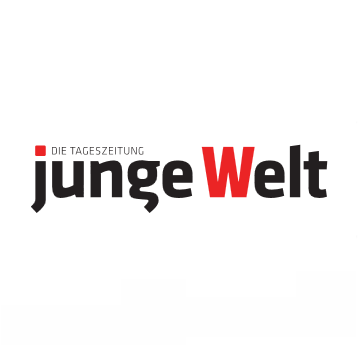#politics #culture #censorship #antisemitism #anti-antisemitism #germany #white-supremacy-thinking
Cultural politics: It's getting tighter
The debate on anti-Semitism, which has been exacerbated by the war in Gaza, is placing an increasing burden on the local cultural scene. Important institutions see international contacts jeopardised. "I am receiving justified comments from cultural institutions that have contacted me because they are wondering how they should continue to work internationally," Katrin Budde, Chair of the Bundestag's Culture Committee, told dpa in Berlin. "As cultural policy-makers, we will have to address the problems so that international cultural relations do not end up being cancelled for the Goethe-Institut, the Humboldt Forum, the Prussian Cultural Heritage Foundation or the Federal Cultural Foundation. These are classic institutions that cannot really be suspected of anti-Semitism, but which say: cooperation must be feasible." The SPD politician wants to allow cultural institutions to do this "without placing them under general suspicion if they also collaborate internationally with countries where we would say: they are behaving in an anti-Semitic manner". It is also about conveying and achieving an understanding of Jewish culture through cooperation. "Culture always builds bridges where everything else has broken down," said Budde.
"It is dangerous when the discourse in culture becomes ever narrower," said the dpa, ironically enough, Minister of State for Culture Claudia Roth (Alliance 90/The Greens), who is currently trying to increase the political influence on the Documenta art exhibition: "The Basic Law safeguards the freedom of art. There is a clear limit when human dignity is violated. That includes anti-Semitism, that includes hostility towards Muslims, that includes racism and any form of misanthropy." The outbreak of anti-Semitism that can be observed is alarming. Roth said of the cultural scene: "There is uncertainty: what is still possible? There are concerns that the discourse could be narrowed. (...) We have to be careful what that means for us as an international, attractive cultural centre. If, in the meantime, there are also cancellations from international artists who say that the discourse in Germany is becoming increasingly narrow," said Roth.
The General Director of the Humboldt Forum in Berlin, Hartmut Dorgerloh, emphasised that public discourse is extremely important, "including that on different definitions of anti-Semitism, which reflect the diversity of Jewish voices". Dorgerloh is also concerned about the international reputation of the location: "We have a high international reputation, not least due to the reappraisal of our colonial history, which is perceived as exemplary in large parts of the world," he said: "At the moment, we are observing with a certain amount of astonishment and irritation how these spaces are narrowing here in Germany."
- deepl-translation
https://www.jungewelt.de/artikel/466457.kulturpolitik-es-wird-enger.html
